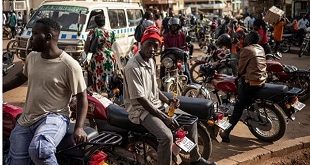
By Habati Asinja Mubatsi
Selfish politicians are using quasi-kingdoms to divide people who have been living together harmoniously
The violent incidents that left tens of people dead in Bundibugyo, Ntoroko and Kasese districts on July 5 leave many unanswered questions. This senseless violence should be condemned by all right thinking members of society. Those who were killed in the violence could have been breadwinners for their families. It means women have been widowed, children orphaned, and parents have been left grieving. It is a loss to the country as well.
It is alleged that people in civilian clothes fought armed police and some UPDF soldiers and tried to grab guns. As a result the police and soldiers had difficulty in identifying who was targeting them and could have shot at anyone they suspected. At Kanyamwirima UPDF barracks over 30 people in civilian clothing were killed on spot. They allegedly attempted to attack the soldiers.
Sources say the attacks on police and army bases in Bundibugyo were led by ‘misguided youths’ from the slopes of Rwenzori Mountains. The youths were reportedly brainwashed after they were told bullets would not harm them. They are said to have been armed with knives, spears, machetes, etc. Allegedly they seem to have been aiming at fighting the newly installed kingship in Bundibugyo. Their actions resulted in deaths of some security agents and innocent civilians. Many of the attackers were killed.
Rwenzori as a region has had enough of armed conflict and violence. From 1964 to 1980 there was insurgency resulting from the Rwenzururu Movement, in 1981-1986 there was the National Resistance Army war and the ADF-NALU in 1996 to late 2001. As people of Rwenzori, we should say not again. Violence is no sustainable solution to problems. It takes us a step back. If people have any disagreements, dialogue is a sustainable solution. People need to be told to be peaceful.
But, be that as it may, the army is insisting these are tribal militia attacks. What inspired unarmed mortal souls to attack armed men? If this is a tribal attack, why target military and police posts? What next?
On the surface many questions remain unanswered. But what is clear is that these attacks seem to have been coordinated and almost happened at the same time. The attacks did not happen all of a sudden. There were pointers that were ignored. Before the attacks, people specifically many Bakonzo were unfortunately unhappy with the creation of Bwamba kingdom. This is unfortunate as I will explain later. For generations people have lived peacefully. But of recent, political short sightedness and selfishness has divided the people. Our youths have been lied to that some kingdoms have political connotations. This misconception will cause more trouble if not properly handled. Most of the youths who are being misled into conflict are illiterate and unemployed. We need to tell our people to concentrate on things that unite us instead of those that divide us.
The limited land for grazing, coupled with high population growth is being competed for by many communities in the area. There have been clashes between cultivators (mainly Bakonzo) and cattle keepers (mainly Basongora) over land. At the same time there have been claims of marginalisation in political leadership at local governments in the region by some communities. In the middle of all this are minority groups such as Batuku, Basongora, Banyabindi, Babwisi, Bambuti, Batagwenda, Veroma, etc who are caught in crossfire of sorts. Some of these communities are now clamouring for districts and recognition of their cultural institutions to insure their identity. The bigger question of what role kingdoms should play and how cultural institutions should relate with each other still lingers.
Looking back, in July 2012, the Bakonzo and Bamba/Babwisi in Bundibugyo district, Western Uganda, clashed. This was after the Rwenzururu king Charles Mumbere visited the district. The Bamba/Babwisi community who feel the district is theirs were offended by the king’s visit. King Mumbere had visited Bundibugyo because it is his ancestral home and to see his subjects who are living on the slopes of Rwenzori Mountains.
Some Bamba/Babwisi saw this visit as a threat to their culture and political offices. They began mobilisng for creation of cultural institution. Soon they announced if the Rwenzururu king wanted to visit Bundibugyo he would seek permission from the area elders. Three years later the Bamba/Babwisi have been given a king by the central government led by President Yoweri Museveni.
Many Bakonzo saw the creation of a kingdom for Bamba/Babwisi as a direct challenge to Rwenzururu kingdom. Yet, this was not the case. The Bamba/Babwisi and Bakonzo have different cultures although there may be some similarities. In my opinion and from the human right point of view, the Bamba/Babwisi have a right to preserve their culture as much as Bakonzo. What is wrong, however, is using politics to deny people’s right to move anywhere in the country and to belong to and associate with any cultural institution.
Some selfish politicians are using these quasi-kingdoms to divide the people. For decades the Bakonzo and Bamba have been living harmoniously. They have intermarried. But the politics of creating districts and kingdoms has divided the people. This is even worse where kingdoms are created but people are ignorant of the real role kingdoms should play in society.
In Rwenzori where the Bakonzo and Bamba suffered marginalisation from Toro kingdom in the 1950s, the Bamba and Bakonzo worked together to liberate themselves from this oppression. But some Bakonzo leaders of Rwenzururu felt they could secede from Uganda. Thus many ordinary peasants in the region mistakenly believed the kingdom of Rwenzururu has those political connotations of a state. Our people need to be told the truth. Kingdoms today are merely cultural, without political powers.
 The Independent Uganda: You get the Truth we Pay the Price
The Independent Uganda: You get the Truth we Pay the Price



